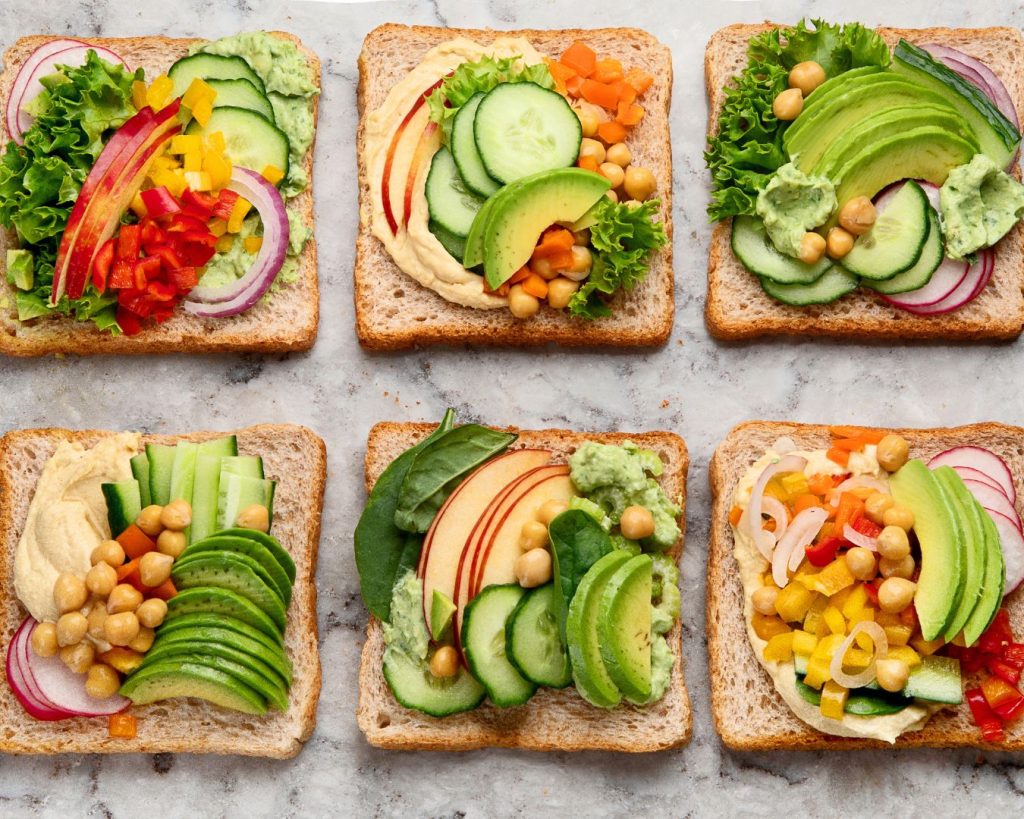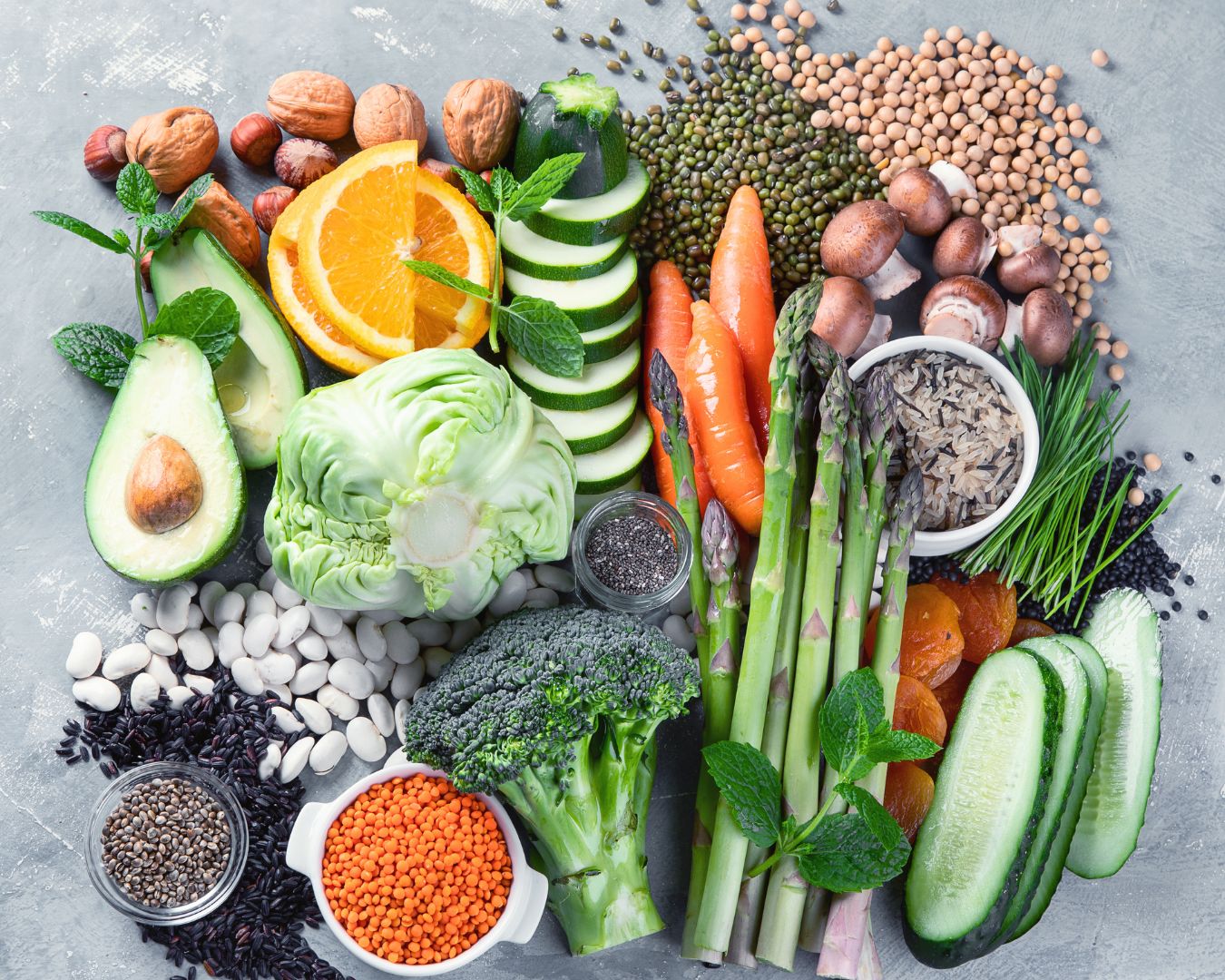Embracing a Plant-Based Diet: A Guide to Healthier Living
A plant-based diet emphasizes foods derived from plants, offering numerous health benefits and supporting sustainable living. Whether you’re considering a vegetarian, vegan, or flexitarian approach, this guide will help you understand the basics, benefits, and how to get started with a plant-based lifestyle.
What is a Plant-Based Diet?
A plant-based diet focuses on consuming whole, minimally processed foods that come from plants. This includes fruits, vegetables, grains, nuts, seeds, and legumes. While it primarily emphasizes plant foods, the extent to which animal products are included can vary:
- Vegetarian: Includes plant-based foods and may include dairy and eggs but excludes meat, poultry, and fish.
- Vegan: Excludes all animal products, including dairy, eggs, and honey.
- Flexitarian: Primarily plant-based but occasionally includes meat and other animal products.

Benefits of a Plant-Based Diet
- Improved Health
- Heart Health: Plant-based diets are rich in fiber, antioxidants, and healthy fats, which can reduce the risk of heart disease.
- Weight Management: These diets are typically lower in calories and higher in fiber, helping to maintain a healthy weight.
- Diabetes Prevention: A diet rich in whole grains, fruits, and vegetables can help regulate blood sugar levels and reduce the risk of type 2 diabetes.
- Environmental Sustainability
- Reduced Carbon Footprint: Plant-based diets require fewer resources, such as water and land, and produce fewer greenhouse gases compared to diets high in animal products.
- Conservation of Biodiversity: Reducing demand for meat can help preserve natural habitats and protect wildlife.
- Animal Welfare
- Choosing plant-based options supports ethical treatment of animals and reduces demand for factory farming practices.
Getting Started with a Plant-Based Diet
1. Transition Gradually
- Start by incorporating more plant-based meals into your diet. Try Meatless Mondays or replace one meal a day with a plant-based option.
2. Explore Plant-Based Protein Sources
- Include a variety of protein-rich foods like beans, lentils, chickpeas, tofu, tempeh, and quinoa to meet your nutritional needs.
3. Focus on Whole Foods
- Prioritize whole, minimally processed foods. Avoid relying too heavily on processed plant-based substitutes.
4. Plan Balanced Meals
- Ensure your meals include a balance of protein, healthy fats, complex carbohydrates, and plenty of fruits and vegetables.
5. Experiment with Recipes
- Try new plant-based recipes to keep your meals interesting and enjoyable. There are countless delicious options to explore.

Examples of Plant-Based Meals
Breakfast
- Overnight Oats: Combine rolled oats, almond milk, chia seeds, and your favorite fruits in a jar. Refrigerate overnight and enjoy a ready-to-eat breakfast.
- Smoothie Bowl: Blend spinach, frozen berries, banana, and plant-based milk. Top with granola, nuts, and seeds.
Lunch
- Quinoa Salad: Toss cooked quinoa with chickpeas, cucumber, tomatoes, red onion, and a lemon-tahini dressing.
- Veggie Wrap: Fill a whole-grain wrap with hummus, avocado, spinach, shredded carrots, and bell peppers.
Dinner
- Stir-Fry: Sauté tofu with a mix of colorful vegetables and a soy-ginger sauce. Serve over brown rice or noodles.
- Lentil Soup: Simmer lentils with carrots, celery, tomatoes, and spices for a hearty, nutritious soup.
Snacks
- Fruit and Nut Mix: Combine dried fruits with a variety of nuts and seeds for a satisfying, nutrient-dense snack.
- Vegetable Sticks with Hummus: Enjoy sliced carrots, celery, and bell peppers dipped in creamy hummus.
Tips for Success
- Stay Informed: Educate yourself about plant-based nutrition to ensure you’re meeting all your dietary needs.
- Find Support: Join online communities, attend plant-based cooking classes, or find a buddy to share the journey with.
- Be Flexible: Listen to your body and adjust your diet as needed. It’s okay to occasionally include animal products if it suits your lifestyle and health goals.
Embracing a plant-based diet is a positive step towards improving your health, supporting the environment, and promoting animal welfare. By incorporating more plant-based meals into your diet and exploring a variety of delicious and nutritious foods, you can enjoy the many benefits of this lifestyle. Start small, stay curious, and enjoy the journey to a healthier you!

